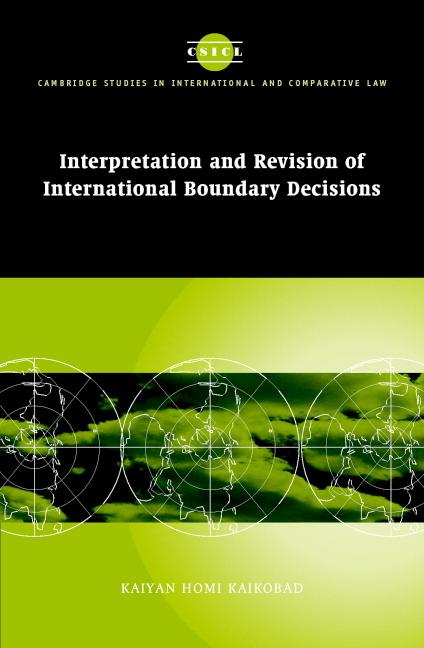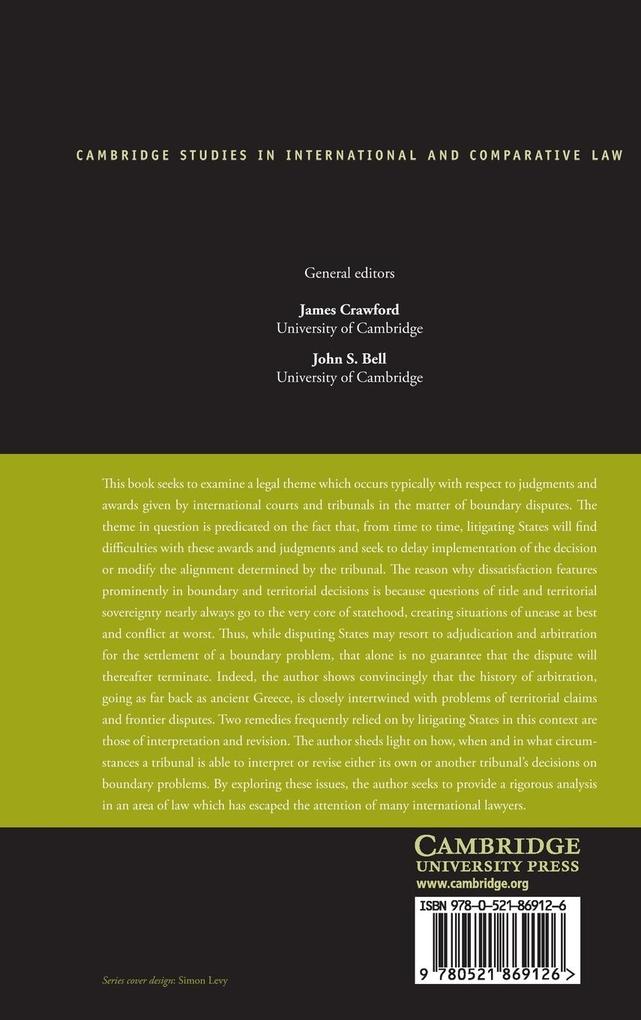
Zustellung: Fr, 06.06. - Mi, 11.06.
Versand in 1-2 Wochen
VersandkostenfreiBestellen & in Filiale abholen:
This book seeks to examine a consistent theme occurring in judgements and awards given by international tribunals in the matter of boundary disputes, a theme which is predicated on finding some sort of difficulty in the implementation of those awards and judgements. This is a feature prominent in boundary and territorial disputes inasmuch as decisions relative to title to territory and location of a boundary line are always keenly contested and hotly disputed. Two remedies which have frequently been relied on by States are those of interpretation and revision. The author sheds light on how, when and in what circumstances will the tribunal be able to interpret or revise either its own or another tribunal's decisions. By doing so, the study succeeds in contributing to an understanding of this area of the law. It is the case that the latter has largely been neglected by jurists.
Inhaltsverzeichnis
Part I. Introduction: 1. Introduction; Part II. The Settlement of Territorial and Boundary Disputes: 2. Problems in settlement; Part III. Judicial Remedies: Interpretation: 3. The interpretation of judgments and awards; 4. The classification of the notion of interpretation; 5. Legal issues regarding interpretation; 6. Principles of interpretation; Part IV. Judicial Remedies: Revision: 7. The revision of judgments and awards; 8. General features of revision; 9. The classification of the notion of revision; 10. Issues of admissibility; 11. Selected substantive and procedural aspects of revision; Part V. Conclusions: 12. Conclusions; Bibliography; Index.
Produktdetails
Erscheinungsdatum
11. Februar 2016
Sprache
englisch
Seitenanzahl
396
Autor/Autorin
Kaiyan Homi Kaikobad
Verlag/Hersteller
Produktart
gebunden
Gewicht
792 g
Größe (L/B/H)
235/157/28 mm
ISBN
9780521869126
Entdecken Sie mehr
Pressestimmen
'Dr Kaikobad is to be commended for exposing with great clarity and precision a highly technical legal topic. The load of case law considered and analysed is impressive, placing Kaikobad's personal views and insights always on firm ground. The balance maintained throughout between the demands of finality of international judicial decisions in accordance with res judicata and of stability of international frontiers, on the one hand, and the remedial function that the powers of interpretation and revision may have with regard to the substantive and procedural fairness of judicial proceedings, on the other, adds to the feeling that the present book will constitute for academics and practitioners the primary reference on interpretation and revision of international boundary decisions for years to come.' European Journal of International Law
Bewertungen
0 Bewertungen
Es wurden noch keine Bewertungen abgegeben. Schreiben Sie die erste Bewertung zu "Interpretation and Revision of International Boundary Decisions" und helfen Sie damit anderen bei der Kaufentscheidung.











